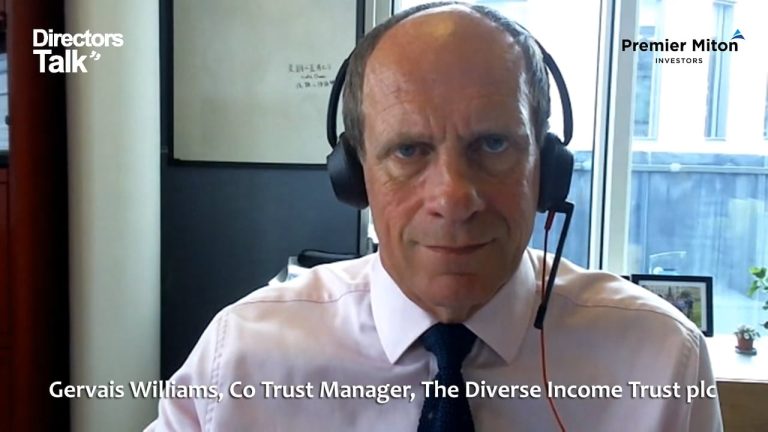Investing in equities in a period of high inflation can be a tricky area and getting the best return on our hard-earned money to generate a retirement income is more important than ever.
In this interview Gervais Williams Co fund manager of The Diverse Income Trust plc (LON:DIVI) at Premier Miton highlights the advantages of pound cost averaging in building a long-term capital sum through regular fixed investments, but also warns of the vulnerability of savers who withdraw cash regularly from their pension pot due to the reverse effect of pound cost averaging. Gervais also discusses equity income strategies and the value of UK Equity Income funds to mitigate the risks and extend the duration of their pension pot.
DirectorsTalk poses to Gervais Williams the following questions:
- As a start, can you outline the concept of Pound Cost Averaging, and why Reverse Pound Cost Averaging is relevant to those with a pension pot seeking to generate a retirement income?
- In this context, with inflation, can you explain how the risk of amplified stock market drawdowns, and extra stock market volatility, might affect the life of pension pots invested in funds that generate returns principally from capital appreciation?
- Surely that potential disadvantage is offset by, the history of equity income funds, because they have delivered weaker returns than capital growth strategies over recent decades.?
- Even if equity income strategies are more relevant, surely the weak prospects for the UK economy suggest that the UK stock market isn’t a good home for long term investors currently?
- Does it matter if investors prefer a regular income, from the Accumulation units of an equity income fund, verses taking the more uneven stream of income from the Income units?
The Diverse Income Trust plc (LON:DIVI) invests primarily in quoted or traded UK companies with a wide range of market capitalisations, but a long-term bias toward small and medium sized companies.
The Company may also invest in large companies, including FTSE 100 Index constituents, where it is believed that this may increase shareholder value.
The Managers adopt a stock specific approach in managing the Company’s portfolio and therefore the amount apportioned to a particular industry sector is of secondary consideration. As a result of this approach, the Company’s portfolio does not track any index.



